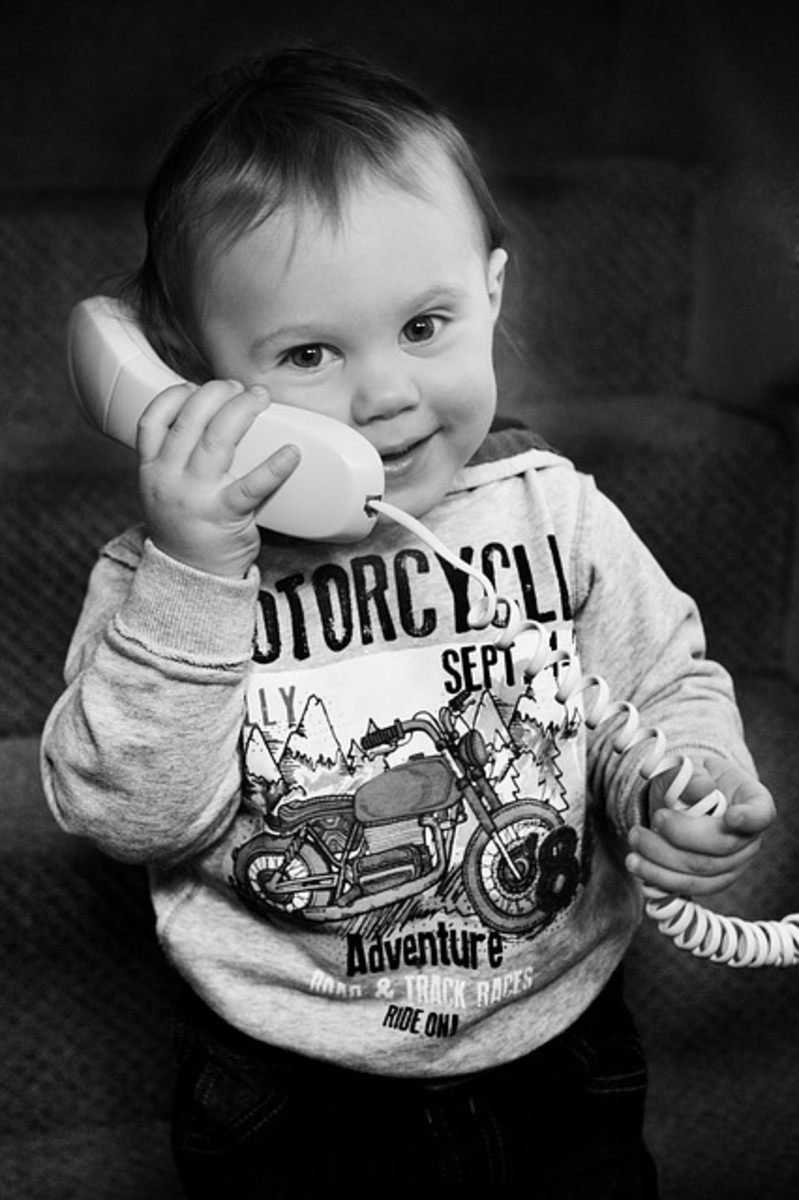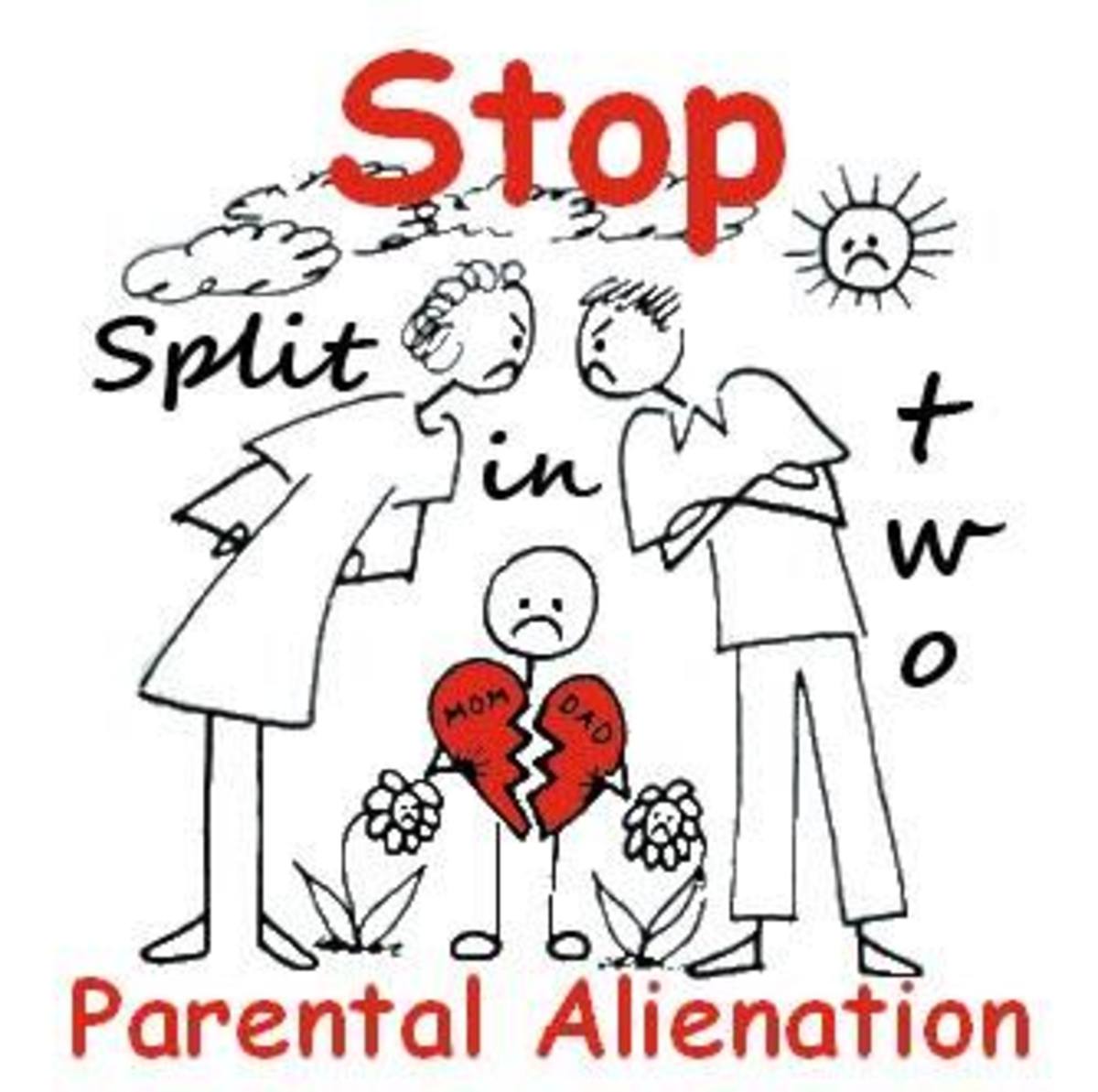How To Talk To Your Children About Divorce

The Heart of the Matter
Going through a divorce is very difficult. Telling your children about divorce is not easy and it cannot be sugar-coated. I'm not talking brutal honesty here, I'm talking about telling kids the truth in very direct and understandable language.
Children are entitled to have their personhood respected. They will go through a range of emotions and it is not the parent's job to "fix" this. As hard as it may be to see your child in pain, they must let those feelings run their course. I know because I have been there with my own children and it is a complicated time in their lives. If you are the custodial parent you will be the one to field tons of questions about why you and your spouse split up. This is certainly a drag and it isn't fair. You will find yourself feeling angry sometimes over being the one left to do damage control all by yourself. Whatever you do, do not take your frustrations out on yourself or the kids. Tell them the truth and let them react as they may. They are people, too and they have feelings. This is a part of the healing process. Here are some talking points to get your started.
- If your spouse is still around and has not abandoned your family or moved away unexpectedly, the two of you will need to meet alone and discuss what you are going to tell the kids. This alone can be a huge source of frustration. One spouse may not want the kids to know that he/she left to be with someone else. I know someone who wanted his wife to lie so he could pretend that he met his girlfriend after the divorce because he didn't want his kids to hate her. Do not be pressured to lie. Adults make their own decisions and if your spouse is running from the consequences, that is their problem and not yours. Some people do not advise telling children of an affair. I come from the school of thought that your children will eventually need to know the truth about your marriage. Even if you decide to wait until your son is 16 to tell him the truth, make sure you do tell him. Children need and deserve to know that their family was not lost because their parents simply gave up or got bored. Whatever the reason for your separation and divorce, discuss what and when to tell the children. Some things need to be told immediately, like one spouse moving out of the home. Other things can wait until later. You decide what those things are.
- If your spouse is unavailable or refuses to be a part of this consider asking a close friend or relative to come over and support you while you talk to the kids. They don't have to sit in the room and listen, unless you want them to. It is best if this person is someone your kids can trust. Once the talk is over and the kids split to their designated rooms or places you may need an extra person to help check on them and reassure them. You will also need someone to be there for you and reassure you that you did a great job. You don't have to do this alone.
- Do not beat around the bush. Telling your kids the truth is the only way to help them learn to accept the altered state of what they knew as their family. It is normal and advisable to keep things at an age-appropriate level but being vague about what is happening will confuse your child and lead them to believe that the separation is only temporary and that you and your spouse are working on the marriage. If you and your spouse have this talk with your child together, you both must reassure your child that he/she still comes first and that you love them. Let them know that you will always be their parent, even if you aren't Daddy's wife or Mommy's husband anymore. Don't leave them confused or guessing about why the marriage is over. Tell the truth.
- If your child is old enough to understand what divorce is they will likely have some mood swings after the revelation. This is normal and your kid is entitled to have an attitude every once in awhile. Just think of how you yourself are feeling about the whole thing and realize that your kid is hurting, too. Don't you have an attitude sometimes? Do you not feel like talking? Do you sometimes not want to leave your bedroom? Do you get grouchy or angry? Guess what? You're only human, and so is your child. Give them some space but do not allow them to be disrespectful to you in their anger. The last thing you need is a rebellious child left unchecked in a single parent home.
- Watch your language. Your kids still love you both even if you hate each other or don't like each other. Watching the two of you point fingers or resort to name calling will hurt their feelings and cause them to feel like they have to take sides. Do not make your children take sides. If you and your spouse hate each other or are combative, you may need to have this meeting with a counselor or pastor present to keep the discussion civil. If you catch yourself losing it, stop and apologize immediately. You are not a robot and you are not expected to not react or have feelings. After all, your are losing a marriage. Just make sure you set a positive example of what to do when emotions get the best of you.
- Consider your child's age and what kind of information is appropriate for them to know. If one of you is leaving to be with another person, your child must know this. There is no escaping this fact because your new significant other will eventually have to meet your kids. Now is not the time to be embarrassed about deciding to stray. You made the decision so own up to it.
- Talk to your children about changes. If there is a visitation schedule for the non-custodial parent make sure the kids know what days they can expect those visits. Make a schedule and stick to it as much as possible. Your kids have had their world turned upside down and shaken. The last thing they need is more surprises and unpredictability.
- Let your child know that Mommy does love Daddy, just not the way a wife loves a husband, or vice versa. Do not leave any room for them to think the divorce is their fault. Do not leave them wondering why the marriage is over. Be clear and direct about why their family is changing.
- Be prepared for questions. If your child asks you a question about your spouse that you can't answer say "I don't know the answer to that Sweetie. You can always ask your Dad if you have any questions for him". This way one parent will not be left to shoulder the burden. This also keeps the lines of communication open between your kids and the non-custodial parent. You want them to have a strong bond no matter what happened between the two of you.
For the parent whose spouse has left or is otherwise unavailable, I am so sorry. Go through the talking points and adjust it to the needs of your family. You will be the single parent and only you know what your family will need to know in order to thrive. If there is something you aren't sure about discussing with your kids, wait. Once you say something you cannot take it back. Ask a trusted friend, counselor or pastor if they think you should address that topic with your children.
Remember that your children are human and they will show emotion. This does not mean that you did something wrong or that you are a horrible parent. They will deal with things they way they know how, just as you are doing. Let your kids' teachers know what is happening to the family so they can be aware of any behavioral changes and make adjustments. Take your time. Take a deep breath. Life goes on.









